The expert team at Zhejiang Blissam Chemical Co., Ltd. has many years of experience and technical expertise in the field of liquis silicone resin. As one of the top silicone manufacturers in China, Blissam works tirelessly to develop new formulas and find innovative solutions to meet customers' specific needs. Their knowledge and dedication have helped us earn the trust and loyalty of our clients.
Silicone resin is a high-performance synthetic material with good weather resistance, high temperature resistance, electrical insulation, and chemical stability. It can be made into various types of products according to different purposes and formulas. The following are some common types of silicone resin products: 1. Silicone resin coating: This product has good weather resistance, wear resistance, and corrosion resistance, and is suitable for outdoor and indoor metal, wood, plastic, and other surfaces. 2. Silicone resin adhesive: This product has excellent weather resistance, high temperature resistance, and low temperature resistance, and is suitable for applications such as bonding, sealing, and insulation. 3. Silicone resin sealant: This product has excellent sealing and waterproofing properties, and is widely used in fields such as electronic equipment, automobiles, and construction. 4. Silicone resin thermoplastic elastomer: This product has good heat resistance, weather resistance, and chemical resistance, and is suitable for soft touch materials in fields such as automobiles and electronic equipment. 5. Silicone resin thermosetting plastic: This product has excellent heat resistance, electrical insulation, and chemical resistance, making it suitable for electrical insulation materials in high-temperature environments. 6. Silicone resin ink and coating: This product has good weather and chemical resistance, and is suitable for use in the printing and coating fields. 7. Silicone resin sealing material: This product has excellent weather resistance, high temperature resistance, and electrical insulation, making it suitable for sealing protection of electronic equipment.
about alkoxy silicone resin, we have carefully prepared some relevant professional knowledge documents for you, {hope to provide some help to you who are interested in liquis silicone resin


1alkoxy silicone resin has become an indispensable component in a wide range of products, including adhesives, coatings, sealants, and even medical devices. Its ability to withstand extreme temperatures, water, and chemicals make it ideal for use in demanding manufacturing processes such as automotive, construction, and electronics. Furthermore, its smooth and non-stick surface has made it a popular choice for molds and coatings, while its electrical insulation properties have made it a go-to material for electronics manufacturing. The versatility of silicone resin continues to drive innovation and improve the efficiency and quality of manufacturing processes worldwide.
2alkoxy silicone resin products exhibit excellent chemical resistance, making them very popular in a variety of industrial environments. They can withstand exposure to acids, solvents and other harsh chemicals without degrading, making them a reliable choice for use in environments where chemical exposure is a concern.

Silicone resin is a versatile and durable material that has become increasingly popular in a wide range of industries. It is a synthetic polymer that is made from silicon, oxygen, carbon, and hydrogen. Its unique chemical properties make it resistant to high temperatures, UV rays, and chemicals, making it an ideal choice for a variety of applications.One of the key features of silicone resin is its durability. It has a strong and flexible molecular structure, making it resistant to wear and tear. This makes it a popular choice for products that require frequent use or exposure to harsh environments.In addition to its durability, silicone resin is also highly versatile. It can be easily molded into various shapes and forms, making it suitable for a wide range of applications. It is commonly used in the production of sealants, adhesives, and coatings for construction and automotive industries.

Silicone resin is a well-known material in the construction and automotive industries, valued for its superb weathering performance. It offers unmatched protection against the damaging effects of UV rays, extreme temperatures, and harsh environmental conditions. Its unique molecular structure allows it to maintain its integrity and strength for many years, making it an ideal choice for long-lasting protection. With its excellent resistance to weathering, silicone resin has become a popular choice for building facades, bridges, and other structures that require durable and reliable protection. Its versatility and durability make it a top choice for architects and engineers, ensuring that their projects are not only aesthetically pleasing but also able to withstand the test of time.
Silicone Resin--An Ultimate FAQ Guide.
1.Is Silicone Resin affected by humid environments?
2.What kind of surface effects can be created with Silicone Resin?
3.About Silicone Resin raw materials
4.Does Silicone Resin have optical properties?
5.Can Silicone Resin be used as a sealant?
6.What is the texture of Silicone Resin?
7.Is Silicone Resin biodegradable?
8.Is Silicone Resin harmful to the human body?
9.Is Silicone Resin fire-resistant?
10.What are the main ingredients of Silicone Resin?
11.What is the difference Silicone Resin Fluids Blissam vs Silicone Resin INEOS AG vs Silicone Resin Gelest Inc
12.About the development history of Silicone Resin factory
13.Can Silicone Resin be used in indoor or outdoor products?
14.What happens when Silicone Resin comes in contact with air?
15.What application areas can Silicone Resin be used in?
16.About Silicone Resin production management system
17.Can Silicone Resin withstand strong acids and alkalis?
18.About the scale of Silicone Resin factory
19.What effect does Silicone Resin have on temperature changes?
20.What are the chemical properties of Silicone Resin?
1.Is Silicone Resin affected by humid environments?
In the construction industry, silicone resin is often used as a building sealant. Due to its excellent weather resistance and adhesion, it can effectively prevent water and air infiltration, ensuring the sealing and durability of buildings. Organic silicone resin sealant is widely used in exterior walls, windows, and doors of buildings.
2.What kind of surface effects can be created with Silicone Resin?
Organic silicone resin has the characteristic of low surface tension, due to the low cohesive energy density of its chemical component polysiloxane, which leads to low intermolecular forces and high flexibility of molecules. The characteristic of polysiloxane is that its solubility is much lower than that of most compounds, which also leads to the difficulty of silicone resin compatibility with other substances.
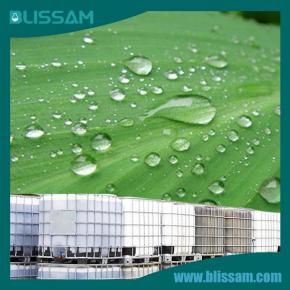
3.About Silicone Resin raw materials
1. Supplier audit: Strictly audit suppliers, including their qualification evaluation, quality management system evaluation, production equipment and process evaluation, to ensure stable and reliable raw material quality of suppliers. 2. Raw material inspection: Conduct a comprehensive inspection of all raw materials entering chemical production to ensure stable quality and compliance with product manufacturing requirements. 3. Quality Record and Traceability: Establish a comprehensive quality record system to record the quality information of each batch of chemical materials, including supplier information, inspection records, and quality issue handling records. At the same time, ensure the traceability of materials, so that the source and quality of materials can be traced when needed. 4. Intermediate inspection: Regularly inspect intermediate products during the production process to ensure that the quality of each link meets the requirements. 5. Final product inspection: Conduct a comprehensive inspection of the final product, including appearance, performance indicators, safety performance, etc., to ensure that the product quality meets national standards and user requirements. 6. Continuous improvement: By continuously monitoring and evaluating the production process and raw material quality, potential problems are identified and improvement measures are taken to improve production efficiency and product quality.
4.Does Silicone Resin have optical properties?
Organic silicone resin is a very important optical material with excellent transparency, heat resistance, and chemical stability. It is composed of organic silicon molecules and polymer matrices, and can be used to prepare various optical components, such as lenses, optical filters, optical fibers, etc. It is widely used in optical communication, optical instruments, and optical storage fields. In addition, the refractive index of organic silicon resin can be adjusted by changing its chemical composition and formula, making it suitable for different optical device designs and preparations. It has low dispersion performance and can meet the propagation needs of different wavelengths of light, reducing color differences in optical devices. At the same time, its optical transparency is excellent, which can minimize the propagation loss of light inside the material and ensure the transmission efficiency of optical devices.

5.Can Silicone Resin be used as a sealant?
Yes.In the construction industry, silicone resin is often used as a building sealant. Due to its excellent weather resistance and adhesion, it can effectively prevent water and air infiltration, ensuring the sealing and durability of buildings. Organic silicone resin sealant is widely used in exterior walls, windows, and doors of buildings.
6.What is the texture of Silicone Resin?
Hand feel is a very important indicator for measuring the quality of finished leather. The use of hand feel agents in the top coating of leather can greatly improve the comfort, aesthetics, and added value of leather. Among the hand feeling agents, silicone hand feeling agents have the best effect, the most varieties, the widest application, and the fastest development. The leather treated with organic silicon tactile agent can not only maintain elasticity, fullness, breathability, and hygiene performance, but also improve the tactile feel and softness. After finishing, the drying speed is fast, and it is not easy to become hard or brittle after drying. The surface of the leather has good stability to water and chemicals.
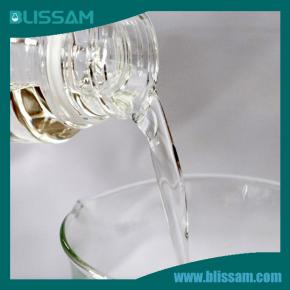
7.Is Silicone Resin biodegradable?
There is currently no clear answer to the question of whether organic silicone resin can be biodegradable. The biodegradability of organic silicone resins varies depending on their composition and environmental conditions. Some organic silicone resins can be biodegradable, but not all organic silicone resins can be biodegradable. In the natural environment, the biodegradation process of organic silicone resin may be influenced by various factors, including microbial species, temperature, humidity, pH value, etc. Some specific microorganisms can decompose organic silicone resin, breaking it down into smaller molecules, ultimately converting it into harmless substances such as water and carbon dioxide. However, the biodegradability of organic silicone resins is not one of their main application characteristics. They are more widely used in fields such as optics, electronics, and medicine, where the stability, heat resistance, and transparency of materials are more important. Therefore, in the design and application process, we focus more on these performance indicators rather than biodegradability. Overall, the biodegradability of silicone resins varies depending on their composition and environmental conditions, but their stability, heat resistance, and light transmittance are more critical in applications in optical, electronic, and medical fields. Therefore, when selecting and using silicone resins, we need to consider them comprehensively based on specific application needs and environmental conditions.
8.Is Silicone Resin harmful to the human body?
Organic silicone resin is a type of resin formed by copolymerization of silicone based monomers and organic monomers, commonly used as coatings, sealants, waterproofing agents, cleaning agents, disinfectants, cosmetics, industrial products, etc. Generally speaking, silicone resins are safe, but there are also some silicone resins that are toxic or carcinogenic. Specifically, the toxicity of organic silicone resin mainly depends on the silicon based monomers and organic monomers involved. If the silicon based monomers are low toxic substances such as ammonium disilicate and sodium disilicate, the toxicity of organic silicone resin is relatively low. But if the silicone monomer is toxic substances such as lead disilicate, the toxicity of organic silicone resin is higher. In addition, organic monomers in organic silicone resins may also have toxicity, such as benzene silicone oil, polyoxyethylene, etc. The current research results on the carcinogenicity of silicone resins are not uniform. Some studies have shown that organic silicone resins have carcinogenic potential, which may lead to liver tumors and lung cancer. However, some studies have shown that silicone resins do not have carcinogenic activity.
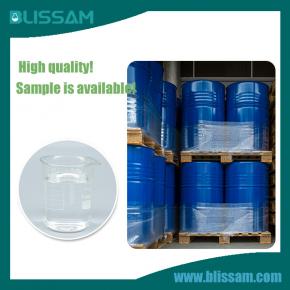
9.Is Silicone Resin fire-resistant?
Yes,Organic silicone resin has significant advantages in resistance to open flame, firstly, it has good high-temperature resistance. Due to the presence of silicon oxygen bonds, organic silicone resin can maintain stability and combustion resistance in high-temperature environments, without producing toxic gases, making it an ideal refractory material.
10.What are the main ingredients of Silicone Resin?
Organic silicone resin is a highly cross-linked network structure of polyorganosiloxanes, usually composed of various mixtures of methyltrichlorosilane, dimethyldichlorosilane, phenyltrichlorosilane, diphenyldichlorosilane, or methylphenyldichlorosilane. In the presence of organic solvents such as toluene, it is decomposed with water at lower temperatures to obtain acidic hydrolysates. The initial product of hydrolysis is a mixture of cyclic, linear, and cross-linked polymers, typically containing a considerable amount of hydroxyl groups. The hydrolysate is washed with water to remove the acid, and the neutral initial condensate is thermally oxidized in air or further condensed in the presence of a catalyst, ultimately forming a highly cross-linked three-dimensional network structure.
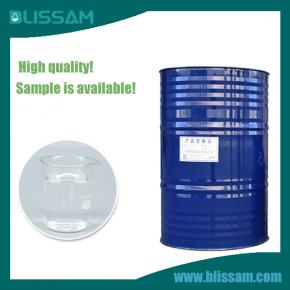
11.What is the difference Silicone Resin Fluids Blissam vs Silicone Resin INEOS AG vs Silicone Resin Gelest Inc
Silicone resin fluids are a type of high performance silicone polymers that have unique properties such as heat resistance, weatherability, and electrical insulation. There are several companies that provide silicone resin fluids, including Blissam, INEOS AG, and Gelest Inc. While all three companies offer silicone resin fluids, they have differences in terms of their manufacturing processes, product composition, and intended applications. Blissam specializes in producing silicone fluids with a wide range of viscosities and functionalities. Their products are used in various industries such as cosmetics, electronics, and coatings. On the other hand, INEOS AG focuses on producing high-performance silicone resins that are suitable for demanding applications in aerospace, automotive, and construction industries. Their silicone resin fluids have high thermal stability and excellent mechanical properties. Gelest Inc, on the other hand, offers a diverse range of silicone resin fluids with unique functionalities such as high refractive index, low surface tension, and solubility in organic solvents. Their products are widely used in the production of specialty coatings, adhesives, and personal care products. In summary, while all three companies provide silicone resin fluids, they have different areas of expertise and offer products that cater to different industries and applications. It is important to consider the specific needs and requirements when choosing the most suitable silicone resin fluid for a particular use.
12.About the development history of Silicone Resin factory
Our company has over 10 years of experience in the organic silicon industry.

13.Can Silicone Resin be used in indoor or outdoor products?
Yes,Silicone resin is widely used in industries, construction, electronics, medical, and daily necessities due to its strong heat resistance, weather resistance, chemical corrosion resistance, and electrical insulation properties.
14.What happens when Silicone Resin comes in contact with air?
Silicone resin is a thermosetting plastic, and one of its most prominent properties is its excellent thermal oxidation stability.
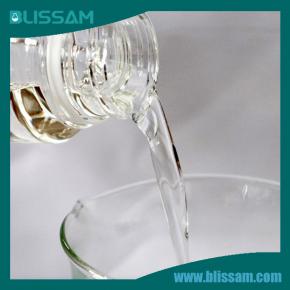
15.What application areas can Silicone Resin be used in?
Organic silicone resin is mainly used as insulation paint (including varnish, enamel, color paint, impregnation paint, etc.) to impregnate H-grade motor and transformer coils, as well as to impregnate glass cloth, glass cloth wire, and asbestos cloth to make motor sleeves, electrical insulation windings, etc. Large area mica sheet insulation material can be prepared by bonding mica with organic silicon insulation paint, which can be used as the main insulation of high-voltage motors. In addition, silicone resin can also be used as heat-resistant and weather resistant anti-corrosion coatings, metal protective coatings, waterproof and moisture-proof coatings for construction projects, release agents, adhesives, and secondary processing into organosilicon plastics. It is used in electronics, electrical, and national defense industries as semiconductor packaging materials, and electronic and electrical silicone resins can be roughly divided into organosilicon insulation coatings, organosilicon coatings, and There are several major categories such as silicone plastics and silicone adhesives. Silicone resin processing additives have unique flexibility and compatibility, and have become a key component in the production of pulp and household paper. The details are as follows: (1) Electrical insulation paint: The volume, quality, and service life of motor appliances are closely related to the performance of electrical insulation materials. Therefore, various types of electrical insulation paints are required in industry, including coil impregnation paint, glass cloth impregnation paint, mica bonded insulation paint, and silicon paint for electronic and electrical protection. (2) Coating: Silicone resin has excellent properties such as heat resistance, cold resistance, weather resistance, and hydrophobicity. In addition, it can obtain colorless, transparent, and has good adhesion and wear resistance coatings, as well as anti adhesion and anti detachment coatings and moisture-proof and hydrophobic coatings. (3) Adhesive: There are two types of polysiloxanes used as adhesives: silicone type and silicone resin type, with differences in structure and crosslinking density between the two. Among them, there are resin based adhesives, including pure silicone resin and modified resin. (4) Plastics: mainly used in heat resistant, insulating, organic silicon plastics, arc resistant packaging plastics for semiconductor module shells, and foamed plastics. (5) Micro powder and trapezoidal polymer: Compared with inorganic fillers, silicone resin micro powder has the characteristics of low relative density, heat resistance, weather resistance, lubricity, and hydrophobicity. The trapezoidal silicone resin has higher heat resistance, electrical insulation, and flame resistance than the general mesh three-dimensional structure silicone resin.
16.About Silicone Resin production management system
1. Establish reasonable production processes and operating procedures: Production processes and operating procedures should undergo scientific research and verification to ensure the stability and controllability of the production process. The operating procedures should specify the requirements for the selection and maintenance of production equipment, the requirements for raw material batching and mixing, and the control requirements for processing conditions. 2. Strict control of production environment: The production environment of chemical products has a significant impact on product quality, so it is necessary to strictly control the production environment, such as temperature, humidity, pressure, cleanliness, etc. 3. Ensure the quality of raw materials: The quality of raw materials is the foundation of the quality of chemical products, so it is necessary to ensure that the quality of raw materials meets the requirements. The procurement, storage, transportation and other aspects of raw materials need to be strictly controlled. 4. Strengthen quality control in the production process: In the chemical production process, strict quality control is required, including quality inspection of raw materials, quality monitoring of the production process, and inspection of finished products. 5. Keep the equipment in good condition: The equipment used in the chemical production process needs to be regularly maintained and inspected to ensure its good condition and normal operation. 6. Training employees: In the chemical production process, employees are required to operate and control, so it is necessary to train employees to improve their skills and abilities to ensure that they can operate and control according to requirements. 7. Adopting advanced testing equipment and technology: By using advanced testing equipment and technology, the quality of chemical products can be more accurately detected, and problems can be identified and solved in a timely manner.
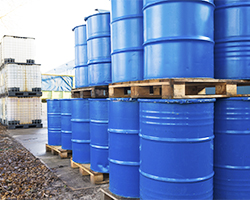
17.Can Silicone Resin withstand strong acids and alkalis?
Yes.Organic silicon coatings can resist the erosion of many chemicals and gases, but the resistance to acid and alkali varies among different types of organic silicon coatings, and appropriate coating materials need to be selected. The evaluation of the acid and alkali resistance of organic silicon coatings is mainly carried out through methods such as salt spray testing and pH measurement. Generally speaking, organic silicon coatings with high cross-linking density and high content of silicon and oxygen elements will have better acid and alkali resistance.
18.About the scale of Silicone Resin factory
The Silicone Resin factory is a leading manufacturer of silicone products, with a large-scale production capacity. With cutting-edge technology and world-class facilities, the factory is capable of producing high-quality silicone resin in large quantities. The factory's scale allows for efficient and cost-effective production, meeting the demands of diverse industries such as electronics, construction, and automotive. As a pioneer in the industry, the Silicone Resin factory has earned a reputation for its consistent quality and reliability, making it a trusted partner for businesses around the world.

19.What effect does Silicone Resin have on temperature changes?
The temperature resistance of organic silicone resin mainly depends on the strength of the silicon oxygen bonds in its molecular structure. Silicon oxygen bonds are a strong chemical bond with a bond energy of up to 300 kcal/mol (approximately 429.8KJ/mol). This means that when the silicone resin is heated, the silicon oxygen bond will be destroyed, releasing a large amount of heat. However, as the temperature increases, the movement of molecular chains in organic silicone resin will also accelerate, leading to more cleavage of silicon oxygen bonds. In this way, the heat resistance of the silicone resin will gradually decrease. According to experimental data, the melting point of ordinary silicone resin is between 200 and 250 ° C, and the ignition point is between 180 and 230 ° C. These data indicate that organic silicone resin is stable at room temperature, but once subjected to high temperatures, it will undergo decomposition, melting, or combustion. However, for specially modified silicone resins, their temperature resistance can be significantly improved. For example, organic silicone resin modified with alumina can have a temperature resistance of 300-400 ° C; The temperature resistance of organic silicone resin reinforced with carbon fibers can reach over 600 ° C; The silicone resin modified with fluoride has a temperature resistance of over 1000 ° C.
20.What are the chemical properties of Silicone Resin?
Silicone resin is a type of synthetic polymer material that is known for its unique chemical properties. It is composed of silicon atoms bonded with oxygen, carbon, and hydrogen atoms, resulting in a highly cross-linked network structure. This structure is what sets silicone resin apart from other resins and gives it its unique properties. One of the main chemical properties of silicone resin is its high durability and resistance to extreme temperatures, chemicals, and weathering. This makes it highly suitable for use in various industrial applications, such as coating, adhesives, and electrical insulation. Additionally, silicone resin is also highly flexible and has good electrical properties, making it an excellent choice for insulation and protection in electronic devices. It is also resistant to UV radiation, making it ideal for use in outdoor applications. Moreover, silicone resin is known for its water-repellent properties, as it does not absorb water or other liquids. This makes it highly useful in waterproofing and coating applications.

Tag:phenyl silicone resin,optically clear silicone resin,rc-21 silicone resin,silicone resin,silicone amine resin
Contact:
Phone: +86-15957191858
E-mail: info@blissam.com
Whatsapp:+8615957191858
Add: A647, No. 9, Xiyuan Road, Xihu District, Hangzhou, Zhejiang, China
We chat
